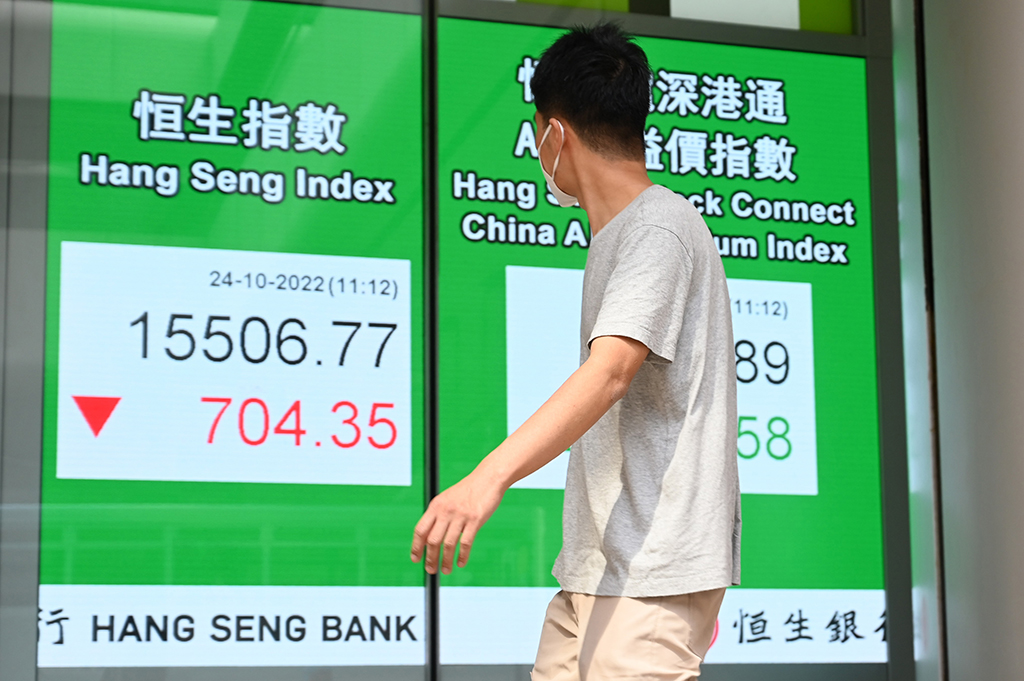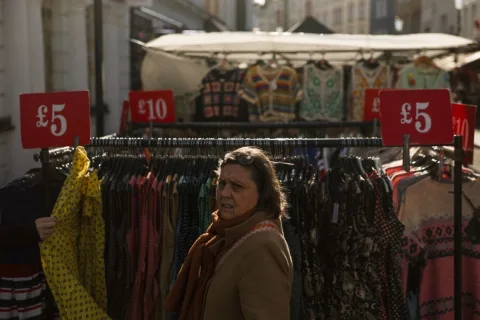BEIJING: China's economy grew at a faster pace than forecast in the third quarter, official data showed Monday, but investors reacted with alarm to President Xi Jinping's sweeping new powers over the ruling Communist Party. Xi secured an expected third term as leader at a party Congress over the weekend, but surprised observers by stacking leadership positions with proteges and allies.
After delaying the release of economic data last week, the government announced Monday that the economy grew 3.9 percent year-on-year in the third quarter. China had been expected to announce some of its weakest quarterly growth figures since 2020, with the world's second-biggest economy hobbled by COVID-19 restrictions and a real estate crisis.
But investors instead focused on the political developments, which raised fears Xi and his allies would continue with gruelling virus lockdowns and other policies that have punished the economy. China's currency slumped and stocks nosedived in Hong Kong to their lowest level since the global financial crisis. On Monday, the onshore yuan dipped more than 0.4 percent to 7.2633 per dollar-its weakest since January 2008. The Hang Seng China Enterprises Index, a gauge of Chinese stocks listed in Hong Kong, closed down by more than 7 percent-the worst showing after any Communist Party Congress since the start of the index in 1994.
"The market is concerned that with so many Xi supporters elected, Xi's unfettered ability to enact policies that are not market friendly is now cemented," said Justin Tang, head of Asian research at United First Partners. One of the most pressing concerns is Xi's zero-COVID policy, which continues to put tens of millions of people under rolling lockdowns that also shutter factories.
China is the last of the world's major economies to hew to the strategy. "There is no clear sign of a significant easing of the zero-COVID strategy," Nomura's Ting Lu said, noting that, if anything, the opposite had happened. In a speech to close the Congress on Saturday, Xi insisted China's COVID response has been a success. And he promoted Li Qiang, the architect of a two-month lockdown in Shanghai that crippled the financial hub's economy, to the second most powerful post in the Communist Party. Tech firms were among the worst hit by Monday's sell-off, which comes after Xi's crackdown on the sector scythed firms' profits and wiped billions off their valuations.
E-commerce giants Alibaba and JD.com tanked more than 10 percent each, while Tencent lost more than eight percent. China is also battling an unprecedented crisis in its real estate sector-which makes up more than a quarter of the country's GDP when combined with construction.
Following years of explosive growth fuelled by easy access to loans, Xi oversaw a crackdown on excessive debt. Property sales are now falling across the country, leaving many developers struggling and some owners refusing to pay their mortgages for unfinished homes. Still, the economic data released on Monday gave some cause for optimism.
The third-quarter growth was higher than the 2.5 percent predicted by a panel of experts surveyed by AFP. "Many economic indicators have actually recovered reasonably well from the mass lockdowns of March and April," according to analyst Thomas Gatley of Gavekal Dragonomics. Car sales held strong in September, driven by strong demand for electric clean vehicles. August exports increased 7.1 percent compared with the previous year, and Beijing has invested in infrastructure to support activity.
In the second quarter of the year, growth had collapsed to 0.4 percent on-year, the worst performance since 2020. The country posted 4.8 percent growth in the first quarter of 2022. Many economists continue to think China will struggle to attain its 2022 growth target of around 5.5 percent, and the International Monetary Fund has lowered its GDP growth forecast to 3.2 percent for 2022 and 4.4 percent for next year. - AFP











